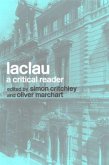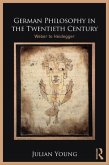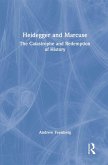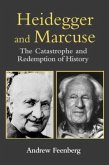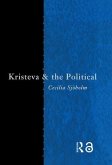The final section investigates the place of hegemony in Laclau's work, the idea for which he is perhaps best-known. This stimulating collection also includes replies to his critics by Laclau and the important exchange between Laclau and Judith Butler on equality, making it an excellent companion to Laclau's work and essential reading for students of political and social theory. Ernesto Laclau, Rodolphe Gasche, Fred Dallmayr, Oliver Marchart, Rado Riha, Linda Zerilli, Simon Critchley, Mark Devenney, Aletta Norval, William E. Connolly, Jelica Sumic, Jason Glynos, J. Hillis Mil
Laclau: A Critical Reader is the first full-length critical appraisal of Laclau's work and includes contributions from several leading philosophers and theorists. The first section examines Laclau's theory that the contest between universalism and particularism provides much of the philosophical background to political and social struggle, taking up the important place accorded to, amongst others, Hegel and Lacan in Laclau's work. The second section of the book considers what Laclau's 'radical democracy' might look like and reflects on its ethical implications, particularly in relation to Laclau's post-Marxism and thinkers such as Jürgen Habermas. The final section investigates the place of hegemony in Laclau's work, the idea for which he is perhaps best-known.
This stimulating collection also includes replies to his critics by Laclau and the important exchange between Laclau and Judith Butler on equality, making it an excellent companion to Laclau's work and essential reading for students of political and social theory.
Laclau: A Critical Reader is the first full-length critical appraisal of Laclau's work and includes contributions from several leading philosophers and theorists. The first section examines Laclau's theory that the contest between universalism and particularism provides much of the philosophical background to political and social struggle, taking up the important place accorded to, amongst others, Hegel and Lacan in Laclau's work. The second section of the book considers what Laclau's 'radical democracy' might look like and reflects on its ethical implications, particularly in relation to Laclau's post-Marxism and thinkers such as Jürgen Habermas. The final section investigates the place of hegemony in Laclau's work, the idea for which he is perhaps best-known.
This stimulating collection also includes replies to his critics by Laclau and the important exchange between Laclau and Judith Butler on equality, making it an excellent companion to Laclau's work and essential reading for students of political and social theory.
' ... is exemplary in its attempt to do justice to the rich and complicated thought of its subject.' - Times Literary Supplement
'After the editor's superb introduction that sets the general implication of Laclau's work, a collection of snappy and well-written articles deal with Laclau's novel conceptualisation of hegemony and its implications ... the text is so well edited that it is quite difficult to find any problem with it.' - Political Studies Review
'After the editor's superb introduction that sets the general implication of Laclau's work, a collection of snappy and well-written articles deal with Laclau's novel conceptualisation of hegemony and its implications ... the text is so well edited that it is quite difficult to find any problem with it.' - Political Studies Review


